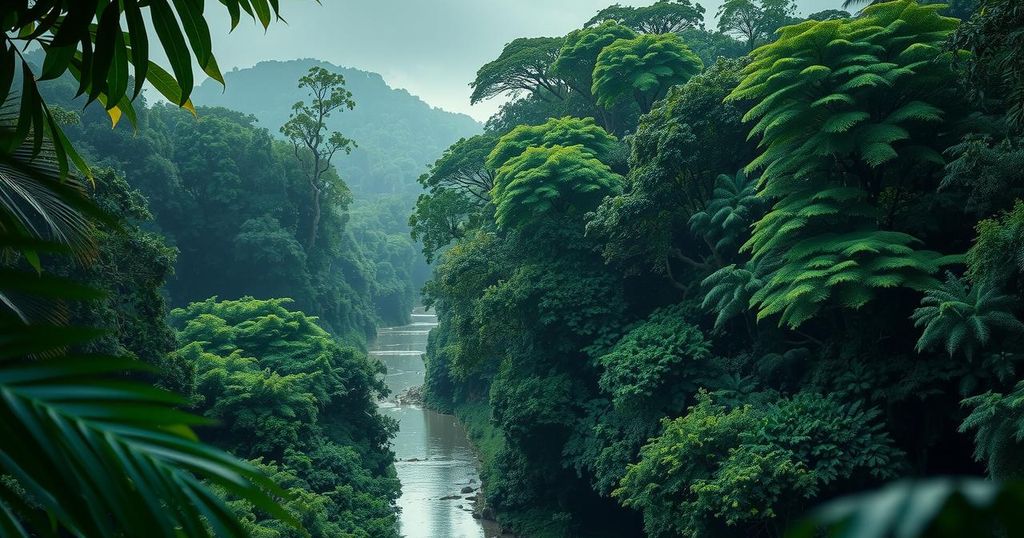The Brazilian segment of the Amazon rainforest, essential for global climate regulation and biodiversity, is threatened by rampant deforestation, illegal logging, and climate change. These factors jeopardize its ecological integrity and the livelihoods of indigenous communities, leading to increased carbon emissions. A comprehensive approach to conservation is crucial to maintaining the forest’s vital functions.
The Amazon rainforest, located in the heart of South America, is an essential and highly biodiverse ecosystem that significantly contributes to global climate regulation. By absorbing carbon dioxide and supporting numerous plant and animal species, it plays a crucial role in maintaining ecological balance. Unfortunately, the Brazilian part of the Amazon is facing significant threats from deforestation and climate change, which impact both its ecological integrity and the livelihoods of indigenous populations.
Deforestation poses one of the greatest risks to the Amazon rainforest today. In recent years, extensive tracts of forest have been cleared for activities such as cattle ranching and soy cultivation, driven by economic pressures and policies favoring rapid development. Reports indicate that weakened enforcement of environmental regulations has led to a sharp increase in deforestation rates, jeopardizing the sustainability of this vital ecosystem.
In conclusion, the Amazon rainforest faces critical challenges from deforestation, illegal activities, and climate change, all of which threaten its environmental health and the well-being of indigenous communities. Protecting this vital ecosystem is essential for global climate stability and biodiversity conservation. Urgent actions are necessary to curb deforestation and strengthen regulations to safeguard this irreplaceable natural resource.
Original Source: globalsouthworld.com




